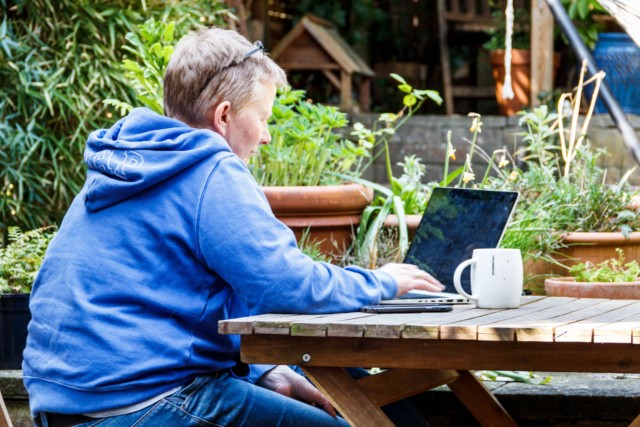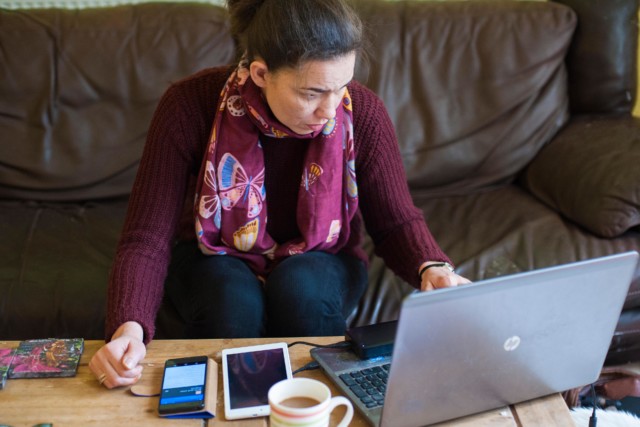BOSSES won’t be able to force Brits back to the office after lockdown ends on July 19, a minister declared today.
Policing minister Kit Malthouse said No 10 doesn’t have “any intention” of ordering people to ditch working from home.
Read our coronavirus live blog for the latest updates
He said the Government largely wants to leave the decision on whether to return to the workplace up to employers and staff.
But he expressed concern the career progression of younger people could be hit if offices are permanently shut.
Mr Malthouse said: “This is a situation for employers and employees to discuss and negotiate themselves.
“We don’t have any intention to make it compulsory to return to the office. Most of these situations can be sorted out between employees and employers.
“One of the things we all need to bear in mind is it’s very hard for young people coming up through an organisation to learn remotely.
“To interact with seniors and to learn from them and get nuance and have those casual conversations which help with their training and their skill set.
“That’s very hard remotely and I’m sure employers will be taking that into account.
“Now we’ve got this ability to communicate electronically there are situations where it’s appropriate and there are others where it’s not, and that’s for employers to work out.”
Ministers are expected to officially drop the demand to work from home when Britain goes into stage four of the pushed-back roadmap.
Boris Johnson says there are “significant benefits” to working from the office – despite the Government expected to back a hybrid approach instead.
Businesses and employees will have to thrash out a new deal between themselves, with Brits at the mercy of their bosses if they want to stay home.
The PM’s spokesman said: “There are significant benefits to be gained from people working in the office, be it innovation, delivery,
“Supporting and developing people and ensuring people have a higher quality working environment remains the Prime Minister’s view.”


The news sparked huge concern that Britain’s hollowed out city centres would struggle to bounce back to pre-Covid levels, with thousands of jobs at risk.
And civil servants warned they may strike if ministers order them back to work if Covid rates are still high.
The PCS union chief Mark Serwotka urged “highly disruptive diktats” not to order them to return “under any circumstances” while rates are soaring.
Downing Street came out to deny that workers would have a legal right to stay working from their homes forever.
However, an upcoming review into flexible working later, set to be launched later this year, will look at enshrining extra rights in law.
Ministers have vowed to make flexible working the default unless employers have an extremely good reason to reject their demands.
The law changes, which aren’t expected for at least another year, could give workers the right to choose more flexible hours, job-sharing, or some working from home.
A separate Flexible Working Taskforce will give advice to businesses within six months on how best to navigate the return to the office.
Most bosses are keen for a compromise between home working and some time in the office, with a hybrid approach favoured by many firms.
Matthew Percival, director of people and skills, at the Confederation of British Industry said yesterday: “The default must remain that businesses control where work is done.
“While they will need to talk with workers about this, accommodate flexibility where they can and explain these decisions, it can’t be unduly onerous to do so.
“That’s why a ‘right to request’ approach is the right one.”
Business Secretary Kwasi Kwarteng said: “I think there’s always going to be a balance. I don’t see a world in which people are working from home 100 per cent of the time. I do see a world in which there’s a mix.
“I think It’s up to employers and also the staff to come to some sort of agreement.”
A government spokesman said: “We’ve asked people to work from home where they can during the pandemic, but there are no plans to make this permanent or introduce a legal right to work from home.
“We have committed to consulting for the longer term on making flexible working the default unless employers have good reasons not to.”
No10 said: “We’ve always been clear there are significant benefits to be gained from people working in the office, innovation delivery supporting and developing people, and of course, ensuring people have a higher quality working environment.
“We’ve asked people to work from home where they can during the pandemic that there are no plans to make or introduce a legal right to work from home.”








